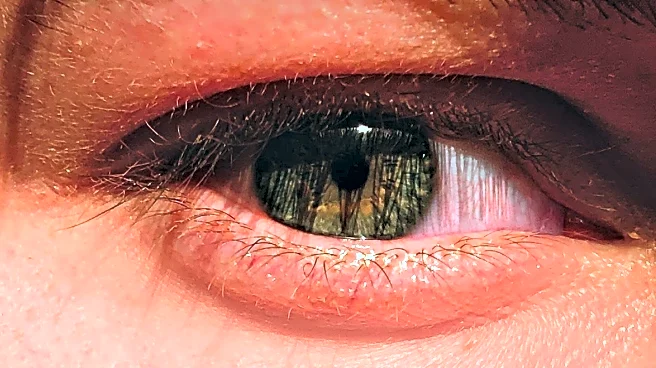What's Happening?
A study published in Nature investigates the temporal visual processing deficits in individuals with persistent post-concussion syndrome (PCS). The research involved 15 PCS patients and 15 healthy controls,
focusing on the critical flicker frequency (CFF) assessment to measure visual processing capabilities. The study found that PCS patients exhibited higher CFF thresholds and variability scores, particularly at peripheral eccentricities, compared to healthy individuals. These findings suggest that PCS may lead to significant alterations in visual processing, contributing to symptoms like dizziness and discomfort.
Why It's Important?
Understanding the visual processing deficits associated with PCS is crucial for developing effective rehabilitation strategies. The study's findings could inform clinical practices and therapeutic approaches aimed at alleviating visual discomfort and improving quality of life for PCS patients. Additionally, the research highlights the need for comprehensive assessments in PCS diagnosis, which could lead to more targeted interventions. The broader impact on public health includes raising awareness about the long-term effects of concussions and the importance of early diagnosis and treatment.
What's Next?
Further research may explore the underlying mechanisms of visual processing deficits in PCS and investigate potential treatments to mitigate these effects. Collaboration between neurologists, optometrists, and rehabilitation specialists could lead to the development of integrated care models for PCS patients. Additionally, advancements in neuroimaging and diagnostic tools may enhance the ability to detect and monitor PCS-related changes in visual processing.
Beyond the Headlines
The study also raises ethical considerations regarding the management and treatment of PCS, particularly in sports and occupational settings where concussions are prevalent. There is a need for policies that prioritize the health and safety of individuals at risk of concussions, ensuring access to appropriate care and support. The cultural shift towards recognizing the seriousness of concussions could lead to changes in how these injuries are perceived and addressed.









